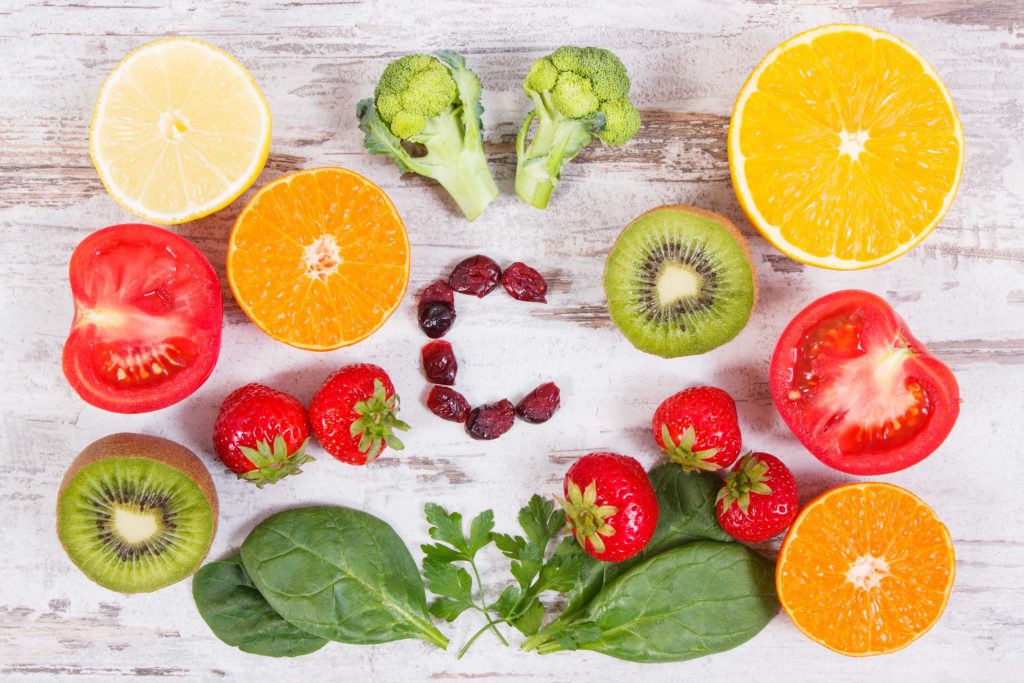During the 1960s, noted biochemist and author Linus Pauling developed a novel theory of the human body. He called it “orthomolecular” medicine. In a nutshell, “Pauling’s theory was that human health could be viewed as a complicated system of chemical reactions”. Over time, Pauling came to the conclusion that vitamin C plays a predominantly important role in many of these reactions. He concluded that heavy doses of vitamin C could help prevent ailments ranging from the common cold to cancer.
Pauling’s book ‘Vitamin C and the Common Cold’ published in 1970 was a huge success and it introduced an unexpected enthusiasm and interest for vitamin C.
According to the National Institutes of Health (Office of Dietary Supplements), some animal and lab studies have found that high-dose injections of vitamin C may help shrink tumors, but there is mixed evidence on that.
How much vitamin C is enough?
The amount of vitamin C you need per day depends on your age, gender, and life stage. Below is the table of average daily recommended amounts of vitamin C depending upon your biological life cycle.
| Age groups | Recommended Amount per day (in mg) |
| Birth to 6 months | 40 |
| Infants 7–12 months | 50 |
| Children 1–3 years | 15 |
| Children 4–8 years | 25 |
| Children 9–13 years | 45 |
| Teens 14–18 years (boys) | 75 |
| Teens 14–18 years (girls) | 65 |
| Adults (men) | 90 |
| Adults (women) | 75 |
| Pregnant teens | 80 |
| Pregnant women | 85 |
| Breastfeeding teens | 115 |
| Breastfeeding women | 120 |
Some people may need extra vitamin C such as:
- Smokers
- People recovering from surgery
- Burn victims
Sources of vitamin C
Vitamin C is found in a wide variety of fruits and vegetables –

| Fruits/Vegetables (Per 100 grams) | Vitamin C quantity in mg |
| Citrus fruits (orange/lemons/grapes) | 53.2/53/4 |
| Apple | 4.6 |
| Chili Peppers | 242.5 |
| Strawberries | 58.8 |
| Kiwi | 92.7 |
| Guavas | 228.3 |
| Thyme | 160.1 |
| Parsley | 133 |
| Brussels Sprouts | 85 |
| Kale | 120 |
| Broccoli | 89.2 |
Health benefits of vitamin C
- May reduce your risk of chronic diseases: Vitamin C is a powerful antioxidant that can strengthen your body’s natural defenses and boost the immune system. It protects cells from harmful molecules called free radicals. Free radicals are known to be linked to many chronic diseases. Research has shown that consuming more vitamin C can increase your blood antioxidant level by up to 30%.
- May help manage high blood pressure: Heart disease is directly associated with high blood pressure, making it a leading cause of death globally. Studies have proven that vitamin C may help lower blood pressure. While the results are promising, it is not evident whether the effects of vitamin C on blood pressure are long term.
- May reduce blood uric acid levels: Uric acid is a waste product produced by the body. At high levels, it may crystallize and deposit in the joints causing severe joint pain, example: Gout. Interestingly, studies have shown that the intake of vitamin C can help reduce the uric acid levels in the blood.
- May reduce skin aging signs: Vitamin C is highly used in beauty care products worldwide. Reason? It’s proven anti-aging effects. Intake of vitamin C supplements or the application of vitamin C serums is associated with a lower likelihood of a wrinkled appearance and dryness of the skin. It also boosts the production of collagen.
If you are looking for the best vitamin C serums, check out here at Body Shop.
- Helps prevent iron deficiency: Anaemia or Iron deficiency is common in teenagers and women. One way to improve your iron levels in the blood is by taking vitamin C supplements which can enhance the absorption of iron from your diet.
Unproven claims about vitamin C
While vitamin C has several scientifically proven benefits, it also has many unproven claims, that are supported by either weak evidence or no evidence at all.
- Prevents the common cold: It is one of the most common myths that vitamin C prevents the common cold. According to research, it can reduce the severity of colds and recovery time by 8% in adults and 14% in children, but there has been no proof of preventing them completely.
- Reduces cancer risk: A handful of studies have linked vitamin C in lowering the risk of several cancers. However, certain research papers state that the intake of vitamin C does not affect the risk of developing cancer.
- Protects against eye disease: Vitamin C has also been linked in reducing the risk of eye diseases such as cataracts and age-related macular degeneration. However, vitamin C supplements have no effect on these diseases, they may instead cause harm even!
- May treat lead toxicity: Although people with lead toxicity appear to have a deficiency of vitamin C, there is no strong evidence from human studies which show that vitamin C can treat lead toxicity.
What are the symptoms of vitamin C deficiency?
If you’re deficient in vitamin C then you could notice the following symptoms:
- Gingivitis (Inflammation of the gums)
- Slow wound healing
- Dry and splitting hair
- Rough and dry skin
- Weak immune system
- Swollen and painful joints
Summing up
Vitamin C plays an important role in boosting your immune system, building connective tissues, and improving heart and blood vessel health, among its other major roles.
A diet rich in vitamin C is an essential step towards a healthy life. So, if your daily diet doesn’t consist of the above mentioned natural sources of vitamin C, start consuming them now.

